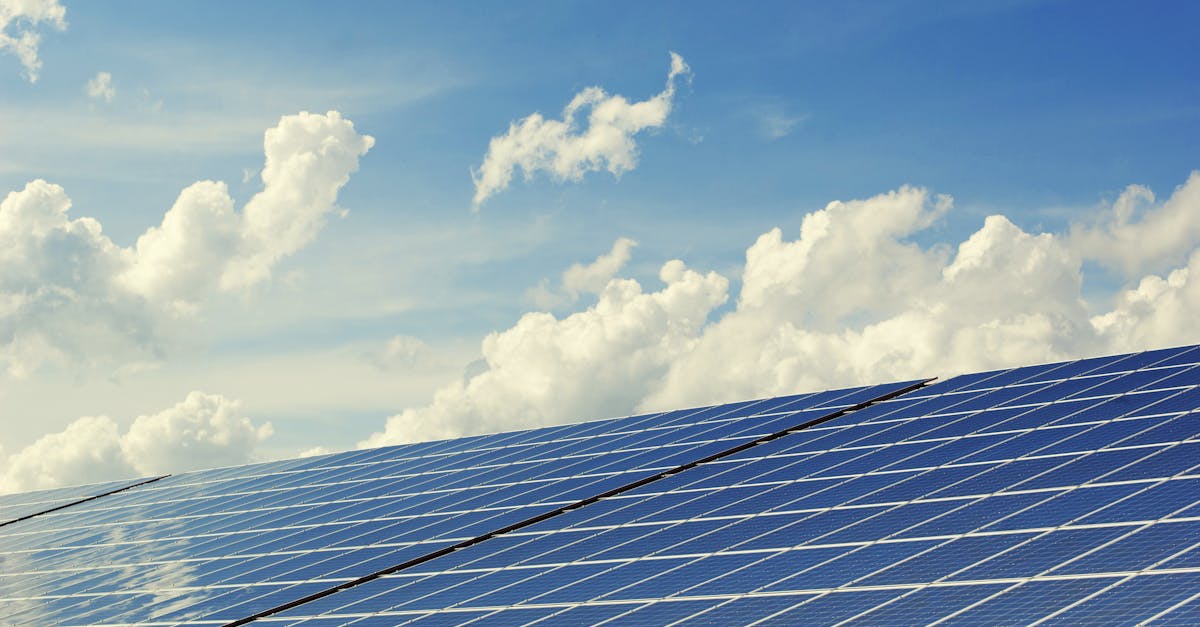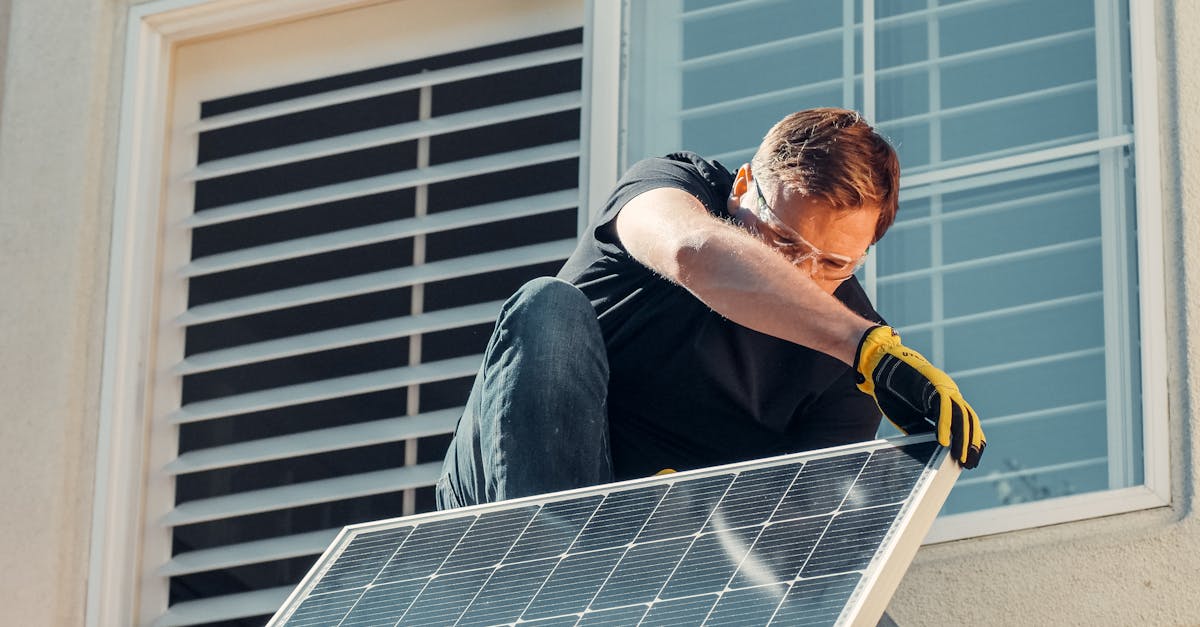
Financing Options for Solar Panel Purchase
When considering solar panel installation, it is essential to explore various financing options that suit individual budgets and preferences. Buyers can choose from outright purchases, leases, or power purchase agreements (PPAs). Each option has its own merits. For instance, buying panels outright may require a significant initial investment but often leads to long-term savings through reduced energy bills. Conversely, leases and PPAs allow for lower upfront costs, making solar energy more accessible for many homeowners.
Another financing route involves securing loans specifically designed for green energy projects. These loans typically offer favourable terms and can cover both the costs of solar panel installation and additional expenses such as inverters or battery storage systems. Credit unions, banks, and other financial institutions often provide these loans, aiming to encourage environmentally friendly investments. It is advisable to shop around for the best loan terms, as rates and repayment schedules can vary significantly.
Loans and Payment Plans
Many homeowners considering solar panel installation often explore various financing options to ease the initial financial burden. Loans specifically designed for renewable energy projects are available, allowing individuals to spread the cost over several years. This approach can make solar energy more accessible, enabling customers to enjoy immediate benefits while repaying the investment gradually. Payment plans are also an attractive option, as they typically come with fixed monthly instalments, ensuring that budget management remains straightforward.
Additionally, certain financial institutions and energy companies offer incentives that can further reduce the overall cost of solar panel installation. These may include low-interest rates or cashback schemes, which are designed to motivate more households to adopt sustainable energy solutions. By evaluating these loans and payment plans, potential buyers can find arrangements that align with their financial situation, paving the way for a greener future without being overwhelmed by upfront costs.
Maintenance Costs for Solar Panels
Maintenance costs for solar panels can vary significantly based on several factors, including the system's size and location. Regular upkeep is essential to ensure the panels operate efficiently and continue to provide maximum energy output. Solar Panel Installation needs to be accompanied by scheduled maintenance checks to monitor performance and address any potential issues that may arise over time.
In addition to general upkeep, unexpected repairs can incur additional costs. While solar panels generally require minimal maintenance, issues such as inverter failures or damaged panels do occasionally occur. Homeowners should anticipate these potential expenses when budgeting for their solar energy system. Investing in a service plan may also provide peace of mind, ensuring that any necessary repairs are handled promptly and efficiently.
Regular Upkeep and Repairs
Regular upkeep is essential for ensuring the longevity and efficiency of solar panel systems. While solar panels generally require minimal maintenance, it is crucial to keep them clean from dirt, debris, and any obstructions that might affect their performance. Performing periodic inspections can also help identify issues such as loose connections or wear on components. These routine checks can prevent more significant problems and costly repairs down the line.
When repairs are necessary, costs can vary depending on the type and extent of the work. Common repairs might involve inverter replacements or other electrical components. If the solar panel installation is covered by a warranty, certain repairs may be handled at no additional cost. Being proactive with maintenance not only ensures optimal performance but can also safeguard your investment in solar technology over the years.
System Size and Energy Needs
Choosing the right size for a solar panel system is critical to meet specific energy requirements. Homeowners should evaluate their average electricity consumption to determine the capacity needed. A smaller system may suffice for some households, while larger families or homes with higher energy demands may require a more robust installation. Factors such as roof size, orientation, and local climate also play a significant role in the overall efficiency of solar panel installation.
The dimensions of the system directly influence the overall costs and potential savings on energy bills. Larger systems generally have higher upfront costs but can yield greater long-term benefits through substantial reductions in electricity expenses. Investing in an appropriately sized solar panel installation ensures that homeowners not only maximise their energy output but can also optimise their return on investment over time.
How Size Affects Overall Cost
The size of a solar panel system directly influences the overall cost of installation. Larger systems typically require more panels, resulting in increased materials and labour expenses. Homeowners with higher energy demands may opt for a more extensive setup to meet their needs, which can lead to a significant rise in the initial investment. However, a larger system also has the potential to generate more energy, which can offset some of these upfront costs over time through savings on energy bills.
Additionally, the efficiency of the solar panels used can vary based on size. While larger installations can accommodate more panels, it’s essential to consider the wattage and performance of each individual panel. Choosing high-efficiency panels can help maximise energy production even with a smaller system, potentially lowering overall costs without sacrificing output. Homeowners must carefully evaluate their energy requirements alongside the size of the solar panel installation to ensure they make a sound financial decision.
FAQS
What is the average cost of having solar panels fitted in the UK?
The average cost of having solar panels fitted in the UK typically ranges from £4,000 to £8,000, depending on factors such as system size and installation specifics.
Are there financing options available for solar panel installations?
Yes, there are several financing options available, including loans and payment plans that can help spread the cost of solar panel installations over time.
What maintenance costs should I expect for solar panels?
Maintenance costs for solar panels are generally low, with regular upkeep and occasional repairs typically ranging from £100 to £300 per year, depending on the system and any issues that may arise.
How does the size of a solar panel system affect its cost?
The size of a solar panel system directly affects its overall cost—larger systems that generate more electricity will typically have higher installation costs, but they may offer better long-term savings on energy bills.
Can I save money on my energy bills with solar panels?
Yes, installing solar panels can significantly reduce your energy bills, and in some cases, you may even generate enough energy to sell back to the grid, further improving your savings.
